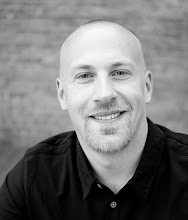Interesting interview:
"In his new book “Bad Religion: How We Became a Nation of Heretics,” Ross Douthat, an Op-Ed columnist for The Times, writes about how Christianity lost its central place in American life through a variety of factors, among them the religion’s failed attempts to accommodate secular trends; a strong identification of the church with strictly conservative politics; a lack of great religious-inspired art; and the appeal to a “God within” that tailors spirituality to the citizens of a self-help age. I recently spoke with Mr. Douthat about the book via e-mail. Below are excerpts of the conversation.
 “Bad Religion”
“Bad Religion”
Q.
Does the book presume that a widespread, mainstream Christianity is necessary to have a thriving United States?
A.
It depends what you mean by “thriving.” I’m not arguing that if we don’t all repent our sins tomorrow, we’re going to be conquered by the Chinese or collapse into a Balkans-style civil war. I’m quite confident that America will remain rich, powerful and relatively stable even if the religious trends I’m describing continue apace. But I do think that institutional Christianity has offered something important to our nation — sometimes a moral critique of our excesses, sometimes a kind of invisible mortar for our common life — that today’s heresies are unlikely to provide.
Q.
What do you mean by the words “heretics” and “heresy” in the book?
A.
I mean expressions of religious belief that are no longer traditionally Christian, but remain deeply influenced by Christianity — and fascinated, in particular, by the figure of Jesus of Nazareth — in ways that are hard to describe as post-Christian or non-Christian or secular. It’s a loaded word, obviously, but I think it’s the best way to describe the religious landscape in America today: Diverse, fragmented, polarized, and yet Christ-haunted all the same.
Q.
Evangelicals and Catholics united with each other “in the cause of culture war.” You argue that culture war is not the best use of Christianity, but is it the strongest glue left to it?
A.
Sometimes it seems to be. In an era of weakened religious affiliation and intensified partisanship, the zeal that’s associated with political combat can supply believers with the feeling of cohesion and common purpose that the institutional churches aren’t always able to supply. The danger here is obvious: If American Christianity is just one expression of the identity politics of conservative America, then it isn’t really much of a Christianity at all. But at the same time, it isn’t enough to say that believers should just stay away from politics entirely. Like all Americans, Christians have an obligation be engaged citizens, and to bring their beliefs to bear on the great debates in our society. If they shirked that duty, you wouldn’t just lose Jerry Falwell or Al Sharpton – you’d lose Reinhold Niebuhr and Martin Luther King.
Q.
You write about current religious popular art feeling “middlebrow, garish and naïve” or “ingenuous and tacky.” How might that change, and how important is it that it does?
A.
One of the striking things about the post-1960s era is how unimportant sacred art and architecture have become in our culture. Obviously some of that reflects the secular biases of our artists and intellectuals. But some of it reflects the straightforward failures of believers to write the novels and make the films and build the cathedrals that would testify, more eloquently than any polemic, to the Christian view of God and man. The critic Alan Jacobs observed to me once that much of what remains of highbrow Christian culture in the West is sustained not by theologians or bishops or pastors, but by poets and novelists and memoirists — C.S. Lewis and Thomas Merton and W.H. Auden and Flannery O’Connor and so on. He’s right, and we need more like them."
Read the rest of John William's interview with Ross Douthat here.
Here's my perspective and what Christians can do to better engage culture.
How do you think Christians are doing? What do you think needs to change?
Think Christianly with Jonathan Morrow
Labels: Christianity, Faith and Culture, Faith and Politics, Think Christianly, Tolerance, Truth, Worldview



0 Comments:
Post a Comment
Subscribe to Post Comments [Atom]
<< Home